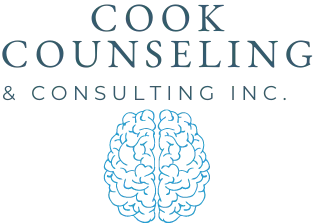When it comes to mental health, emotional neglect stands as a silent and often overlooked form of trauma. It manifests when individuals, particularly in childhood, don’t receive the emotional support and validation they need. Unlike overt abuse, emotional neglect operates quietly, leaving lasting impacts on emotional well-being. Let’s delve into what emotional neglect is, its consequences, and how acknowledgment and healing can pave the way for a healthier emotional life.
What s Emotional Neglect?
Emotional neglect occurs when an individual’s emotional needs are consistently unmet or invalidated, creating an environment devoid of emotional support and responsiveness. It can transpire in various relationships, with parents, caregivers, or significant others failing to provide the necessary emotional nourishment, attention, and validation.
Signs and Consequences
Identifying emotional neglect can be challenging, as it often involves the absence of something rather than a tangible presence. Common signs include a pervasive sense of emptiness, difficulty forming or maintaining relationships, low self-esteem, and struggles with emotional regulation. The consequences of emotional neglect can extend into adulthood, impacting mental health, self-perception, and interpersonal dynamics.
Influence on Relationships and Healing
The effects of emotional neglect often manifest in adult relationships. Individuals who have experienced emotional neglect may struggle with intimacy, have difficulty trusting others, or fear vulnerability. Forming and maintaining healthy connections can be a formidable task, as the patterns established in childhood continue to shape interpersonal dynamics.
Recognizing and addressing the impacts of emotional neglect is crucial for healing. Therapy, particularly approaches that focus on attachment and emotion regulation, can provide a safe space to explore and process these experiences. Therapists work with individuals to build self-awareness, validate their emotions, and develop healthier patterns of relating to themselves and others.
Building Emotional Literacy and Breaking Generational Patterns
A crucial aspect of healing from emotional neglect involves building emotional literacy. This process entails identifying, understanding, and expressing one’s emotions. Through therapy, individuals can develop the skills needed to navigate their emotional landscape, fostering a deeper connection with their feelings and enhancing interpersonal relationships.
Emotional neglect often operates within generational cycles. Breaking these patterns requires a conscious effort to address and heal from past neglect. Individuals who have experienced emotional neglect can play a pivotal role in breaking the cycle by seeking therapeutic support, fostering emotional awareness, and developing healthier emotional bonds with their own children.
Wrapping Up
Understanding emotional neglect is the first step toward acknowledging and addressing its profound impact on mental health. By recognizing the signs, exploring the consequences, and engaging in the healing process through therapy and emotional literacy, individuals can pave the way for a more fulfilling and emotionally rich life. Breaking free from the silent struggle of emotional neglect is a courageous journey towards self-discovery, healing, and building resilient, meaningful connections.
References
Summers, D. (2016, February 18). How to Recognize and Overcome Childhood Emotional Neglect. GoodTherapy.org. https://www.goodtherapy.org/blog/how-to-recognize-overcome-childhood-emotional-neglect-0218165
Lerner, J. S., Li, Y., Valdesolo, P., & Kassam, K. S. (2015). Emotion and Decision Making. *Annual Review of Psychology, 66*(1), 799-823. https://doi.org/10.1146/annurev-psych-010213-115043

